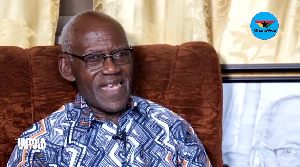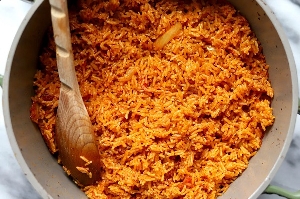- Home - News
- TWI News | TV
- Polls
- Year In Review
- News Archive
- Crime & Punishment
- Politics
- Regional
- Editorial
- Health
- Ghanaians Abroad
- Tabloid
- Africa
- Religion
- Election 2020
- Coronavirus
- News Videos | TV
- Photo Archives
- News Headlines
- Press Release
Business News of Wednesday, 16 February 2011
Source: GNA
Economist adjudges cocoa Ghana's largest foreign exchange earner
Accra, Feb. 16, GNA - An Economist on Tuesday adjudged cocoa as Ghan= a's largest foreign exchange earner contrary to economic indices which label gold as such.
"In 2009, while gold earned the nation 2.98 billion dollars, what ca= me into the economy in terms of taxes, royalties, consumables, payments for workers came to 668 million dollars, that is, only 22 per cent," Dr Kwadw= o Tutu, Senior Economist at the Institute of Economic Affairs stated in Accra= .. "On the other hand, in 2009 cocoa earned 1.87 billion dollars with 9= 0 per cent, that is, 1.68 billion going to cocoa farmers and farm hands, staf= f of COCOBOD, taxes and other expenditure," he added.
Speaking at a public lecture on the theme: 93Trade for Sustainable Development: The Story of Export of Cocoa, Gold and Timber Exports in Ghana," Dr Tutu explained that on the social sector, cocoa employed an estimated 800,000 farmers with about 3.2 million farmhands giving a total employment of four million people. "Staff employed by COCOBOD is about 6,121... On the other hand the mining sector employed 27,481 workers with an estimated 500,000 small scale miners."
Dr Tutu noted that between 1994 and 2006, a yearly average of 73 per cent of all Foreign Direct Investment went to minerals. "Yet it is so capital intensive that its impact on the economy is negligible. From 1990 to 2009, about 9.02 billion dollars was invested into the minerals sector which earned about 19.6 billion dollars from gold over the same period. This shows that an investment of 1.00 dollar in the minerals earns 2.00 dollars of returns.
"However, for cocoa, the total foreign exchange earnings over the sa= me period was 13.9 billion with an investment of about 818 million dollars giving an investment of 16.00 dollars for 1.00 dollar." Dr Tutu noted that the environmental problem from cocoa was the conversion of forest into cocoa farms but it had added benefit of tree cove= r that compensated partly for initial conversion.
"Already timber exploitation has contributed to significant deforestation. Only about 18 per cent of Ghana's forest is left. Social a= nd environmental problems from gold include diseases like malaria, schistosomiasis, respiratory problems, resettlement problems, deforestation and land degradation, soil erosion, soil and water pollution," he stated. Dr Tutu said it was clear that while cocoa had higher economic and social benefits than gold and timber, the gold and timber had serious environmental cost, adding that it was important to estimate these costs. He recommended the setting up of a 93Development and Heritage Fund,= " and massive investment to modernize agriculture and increase value addition. The public lecture organized by the IEA was chaired by Alhaji Amadu Sorogho, Chairman of the Parliamentary Committee on Trade, Industry and Tourism. It was attended by some Members of Parliament, economists, representatives from the mining, cocoa and the minerals sectors, as well as media practitioners.










